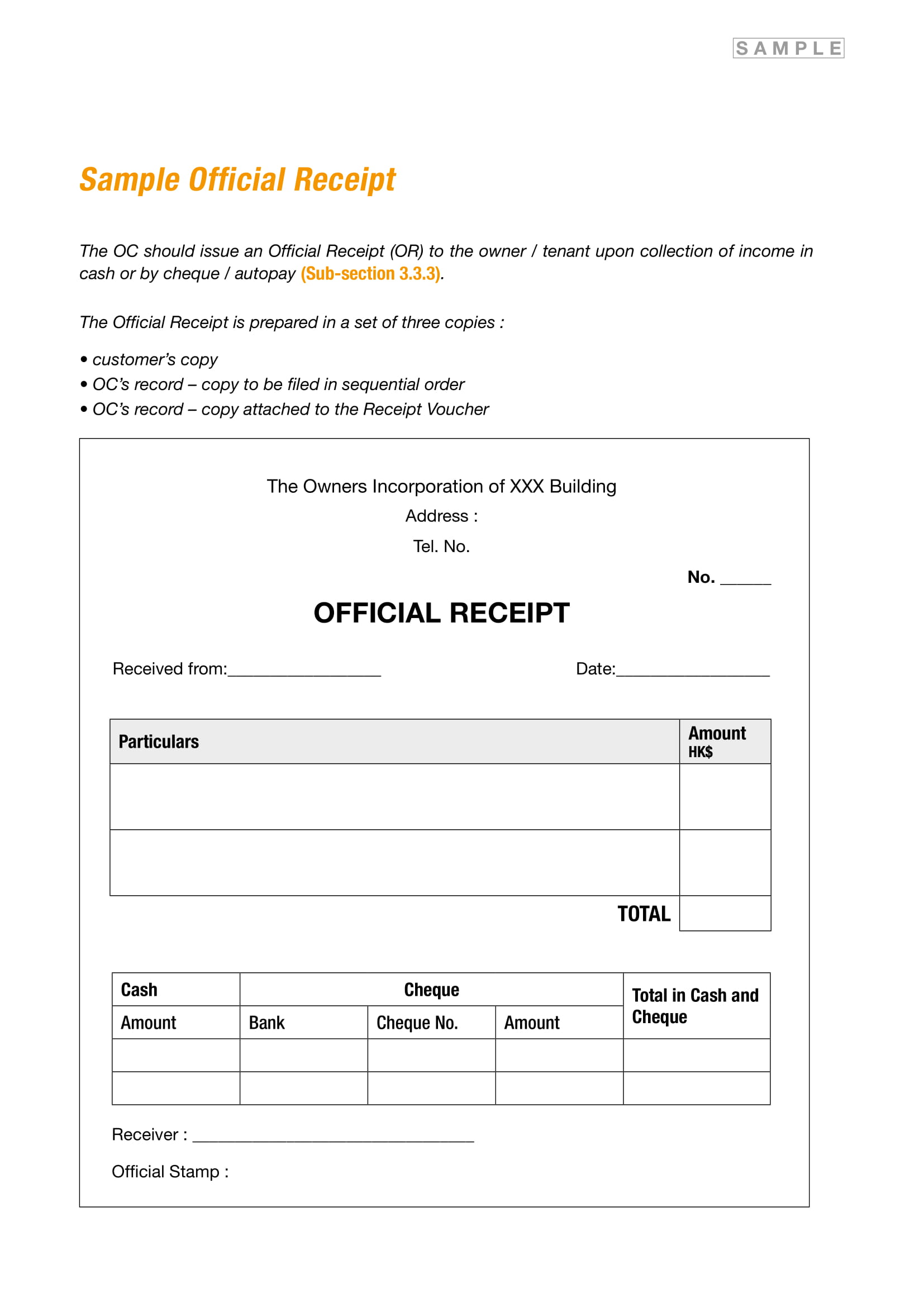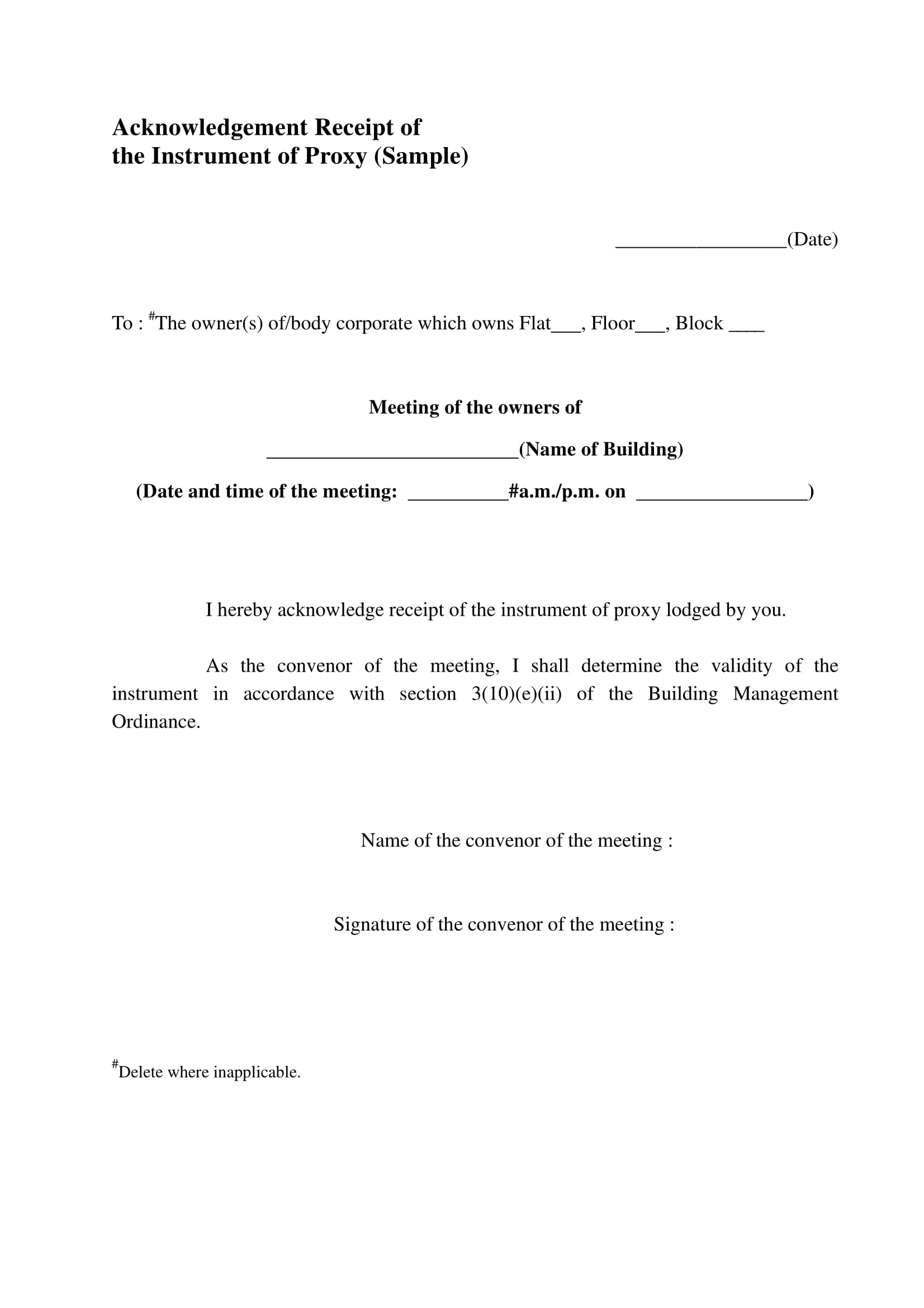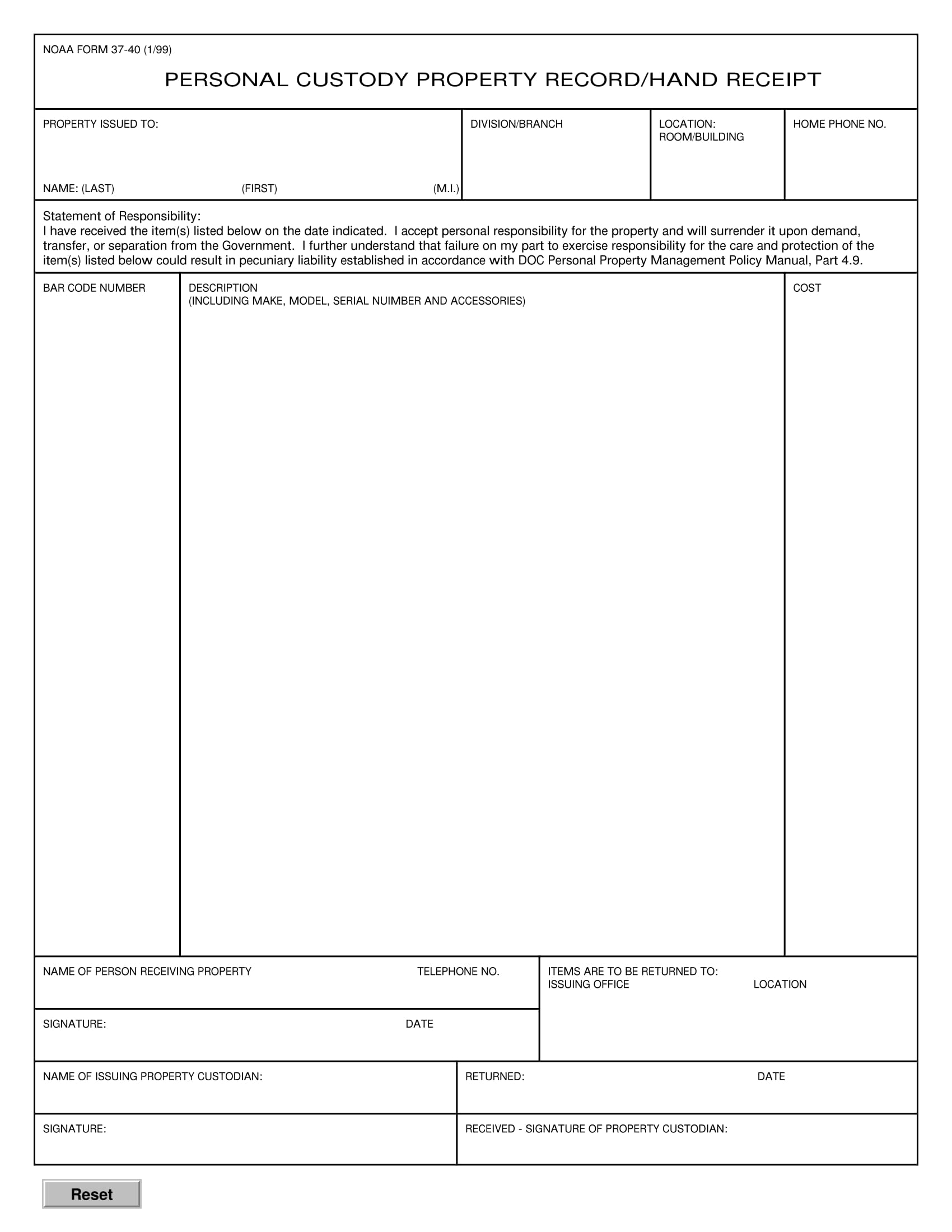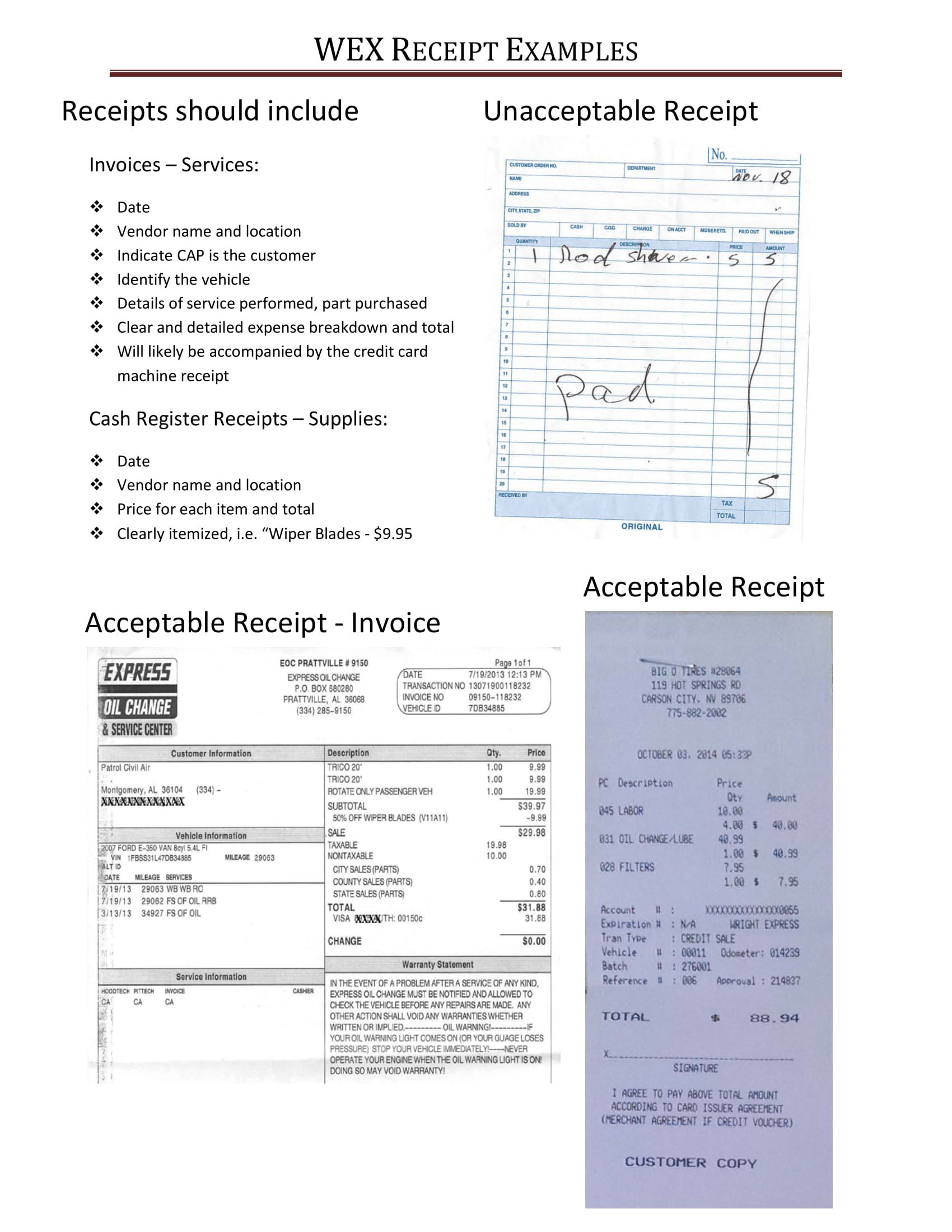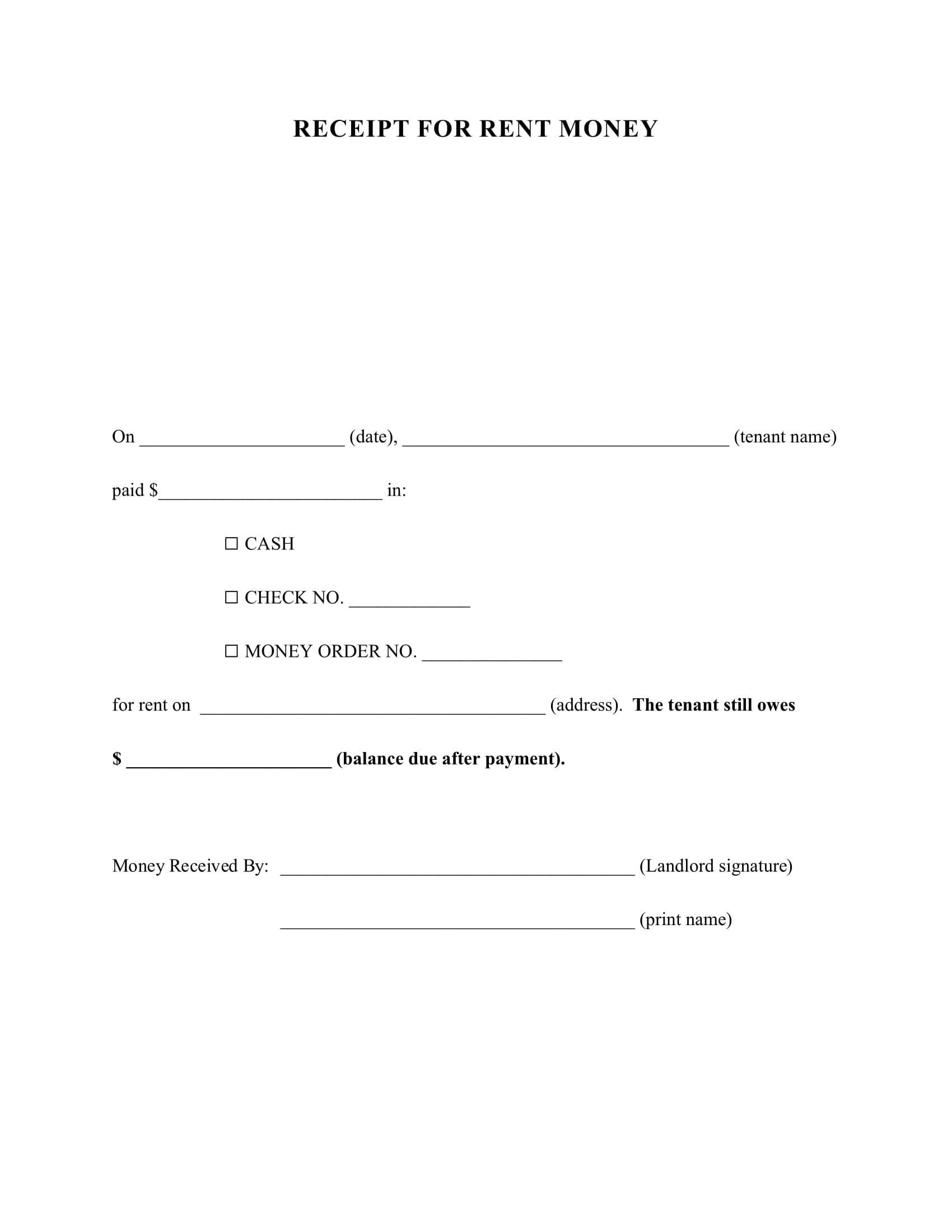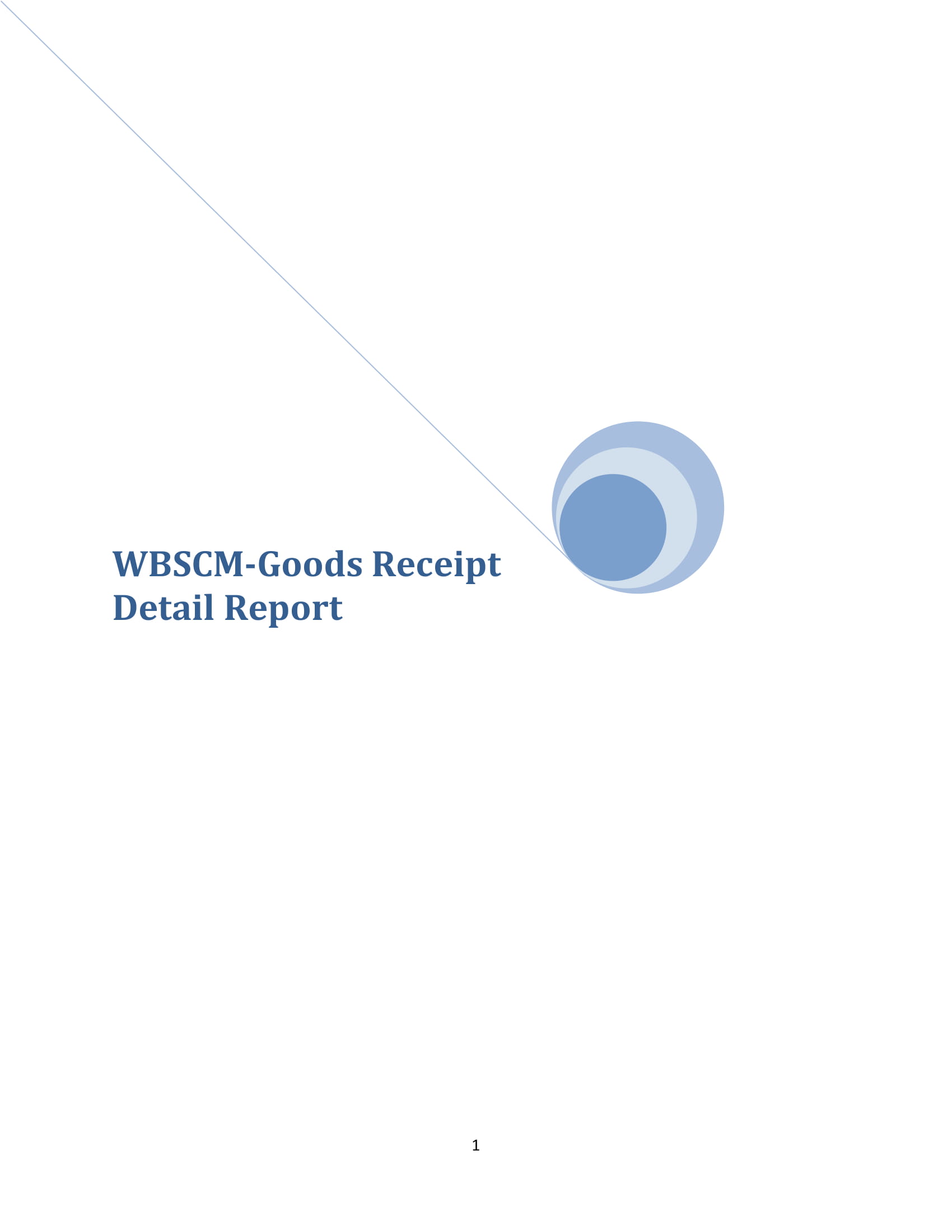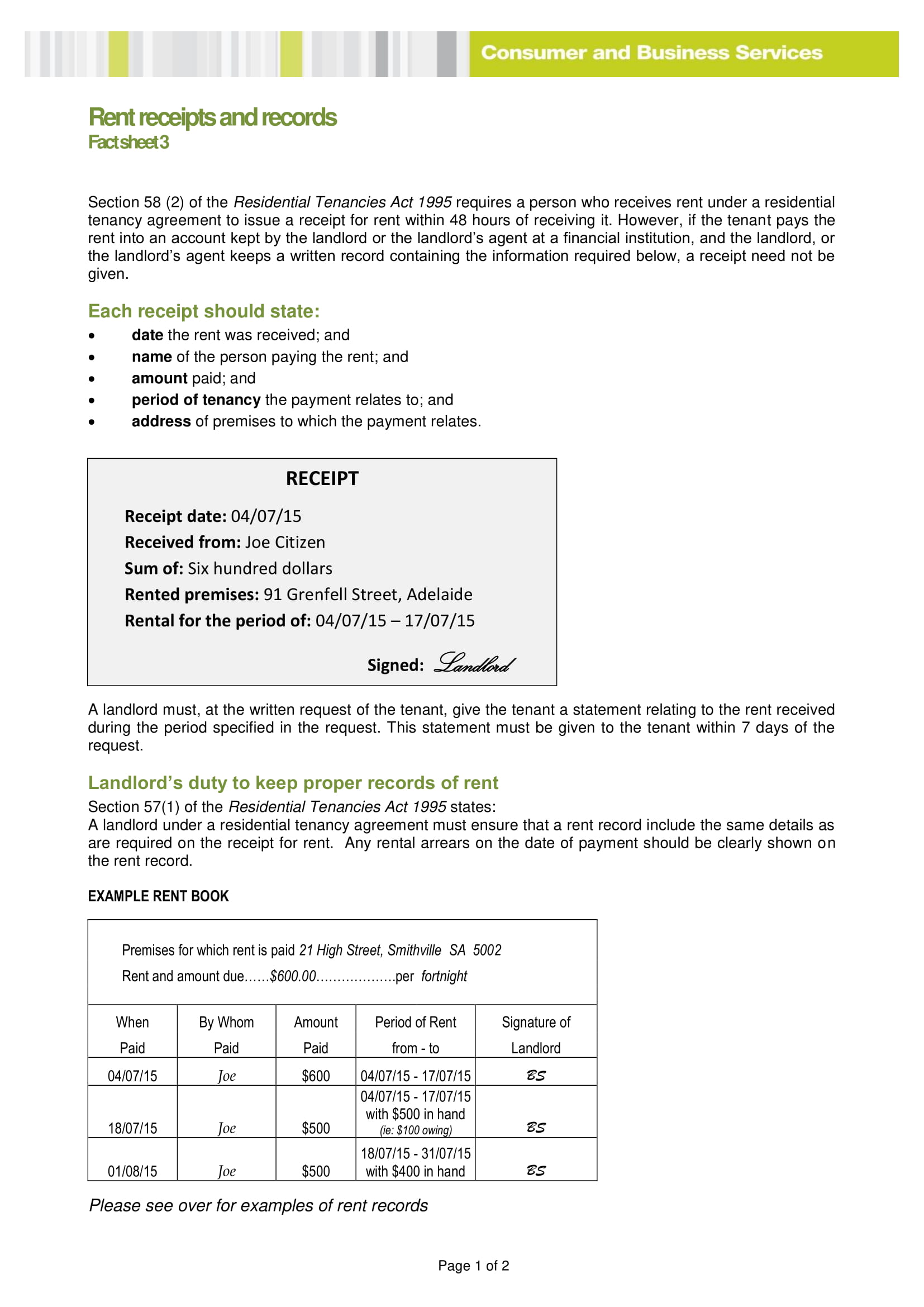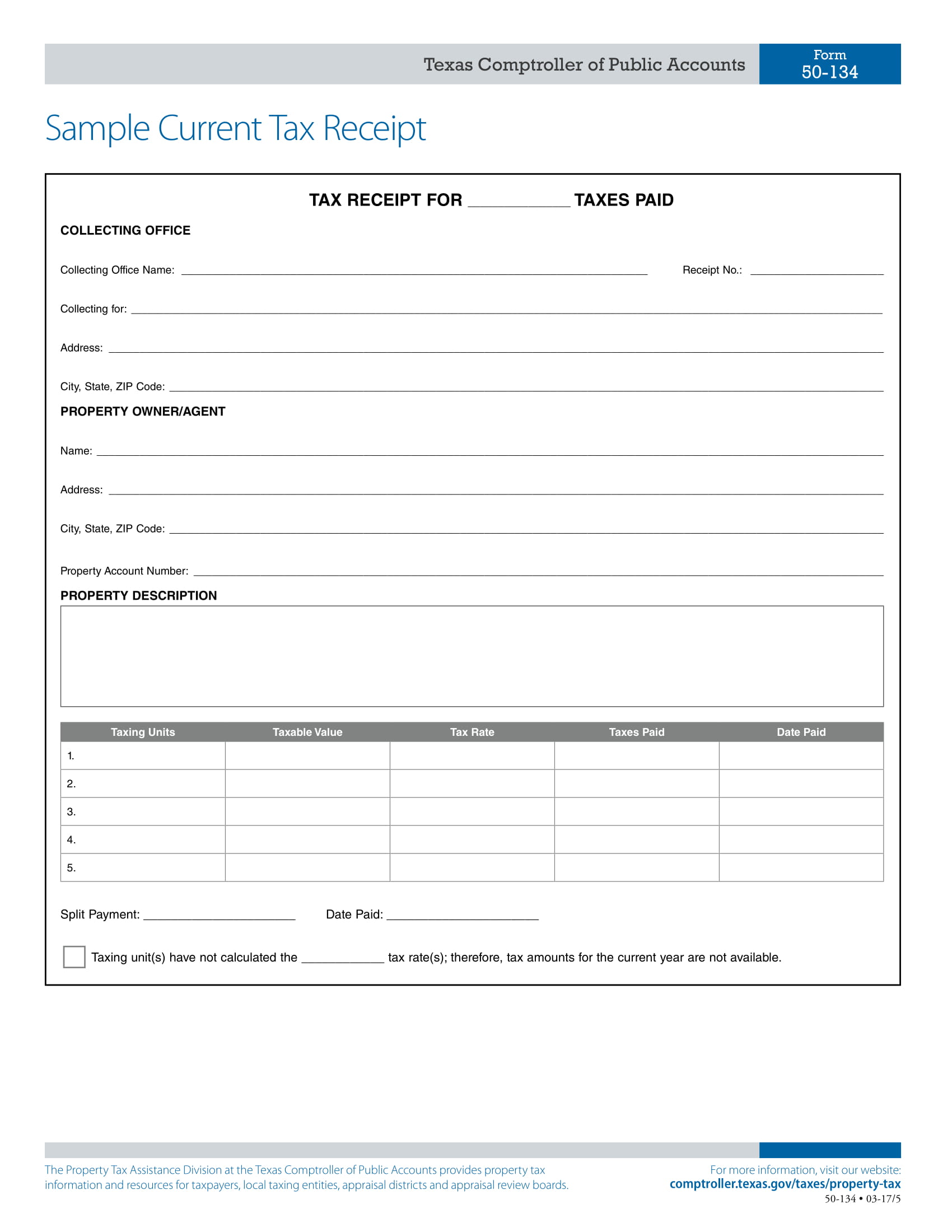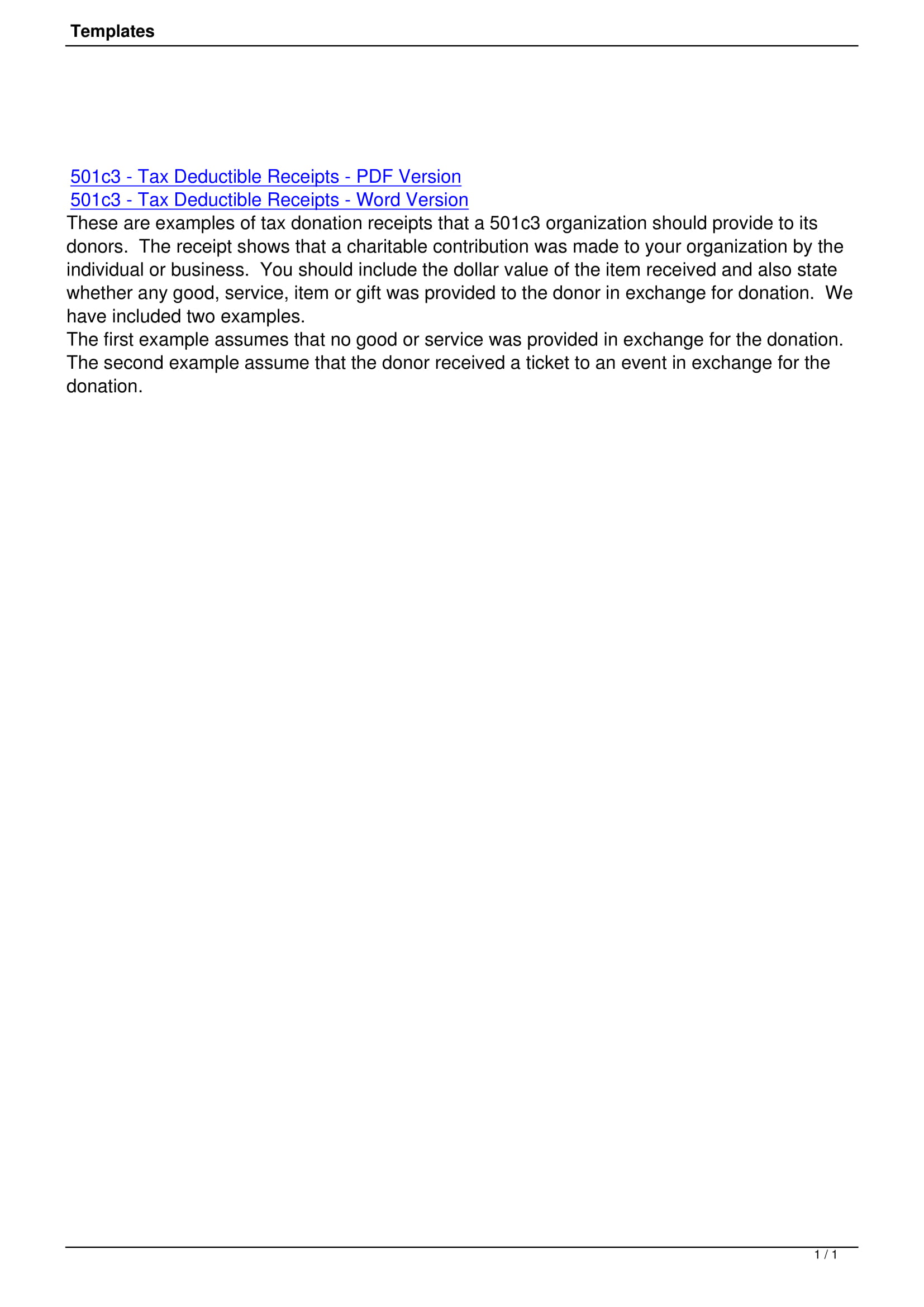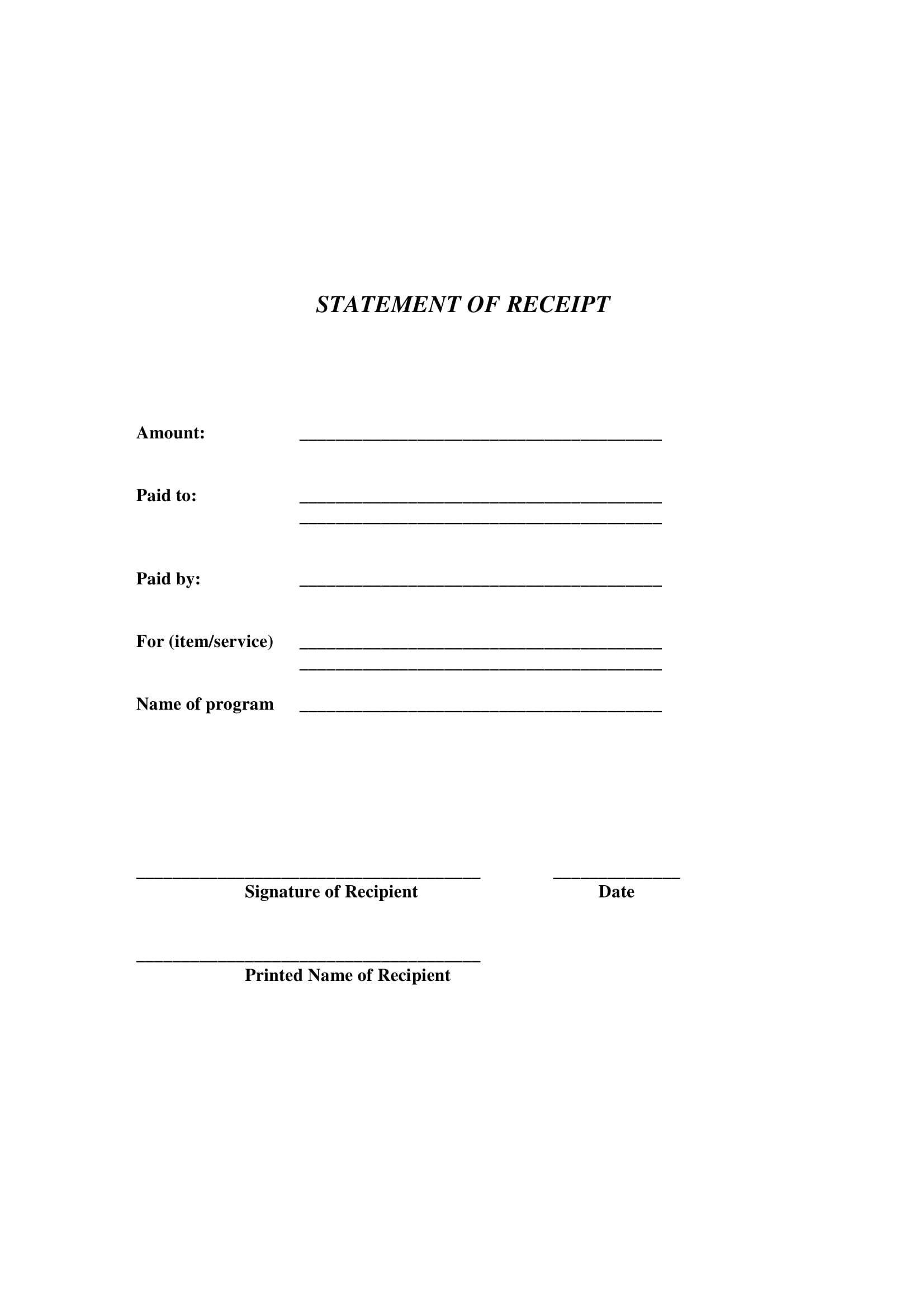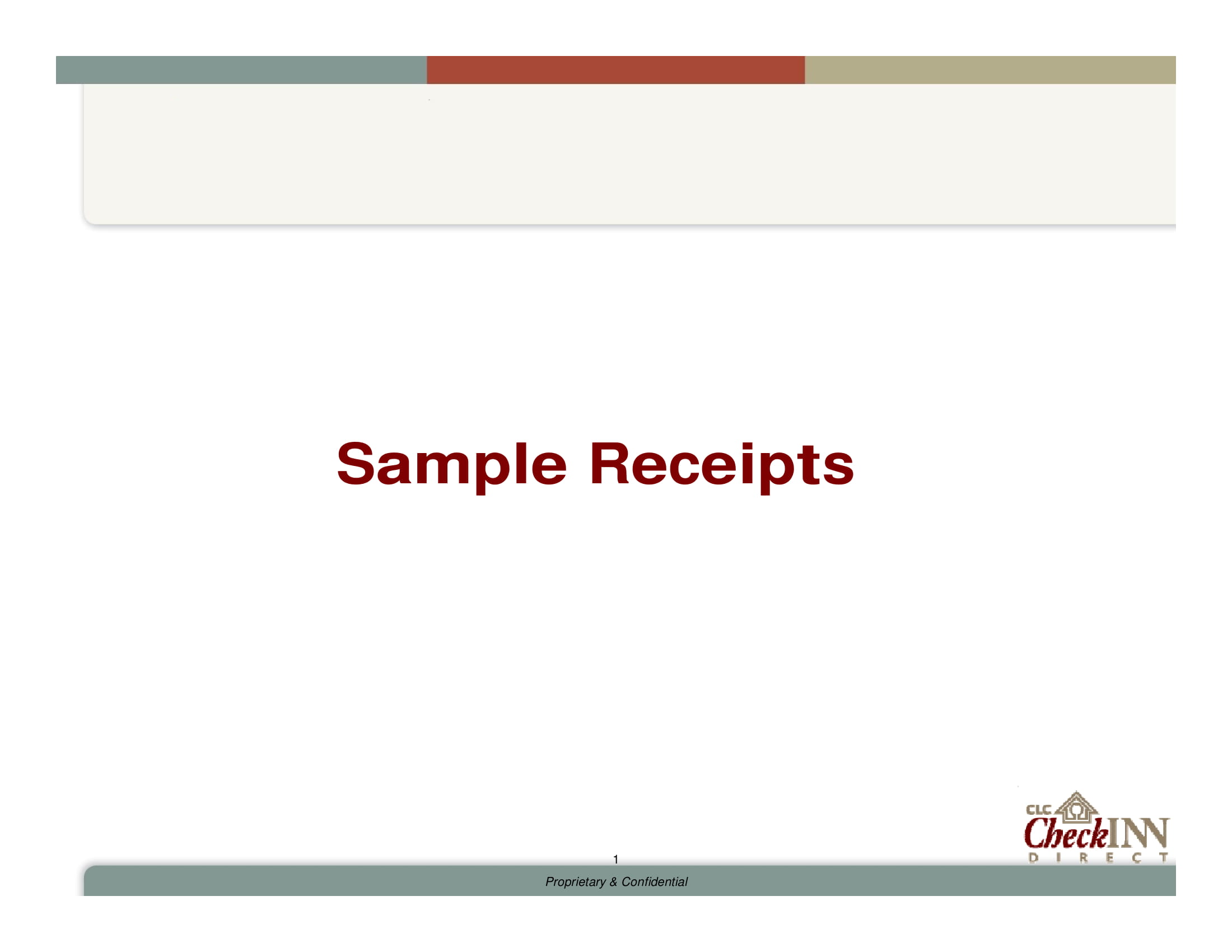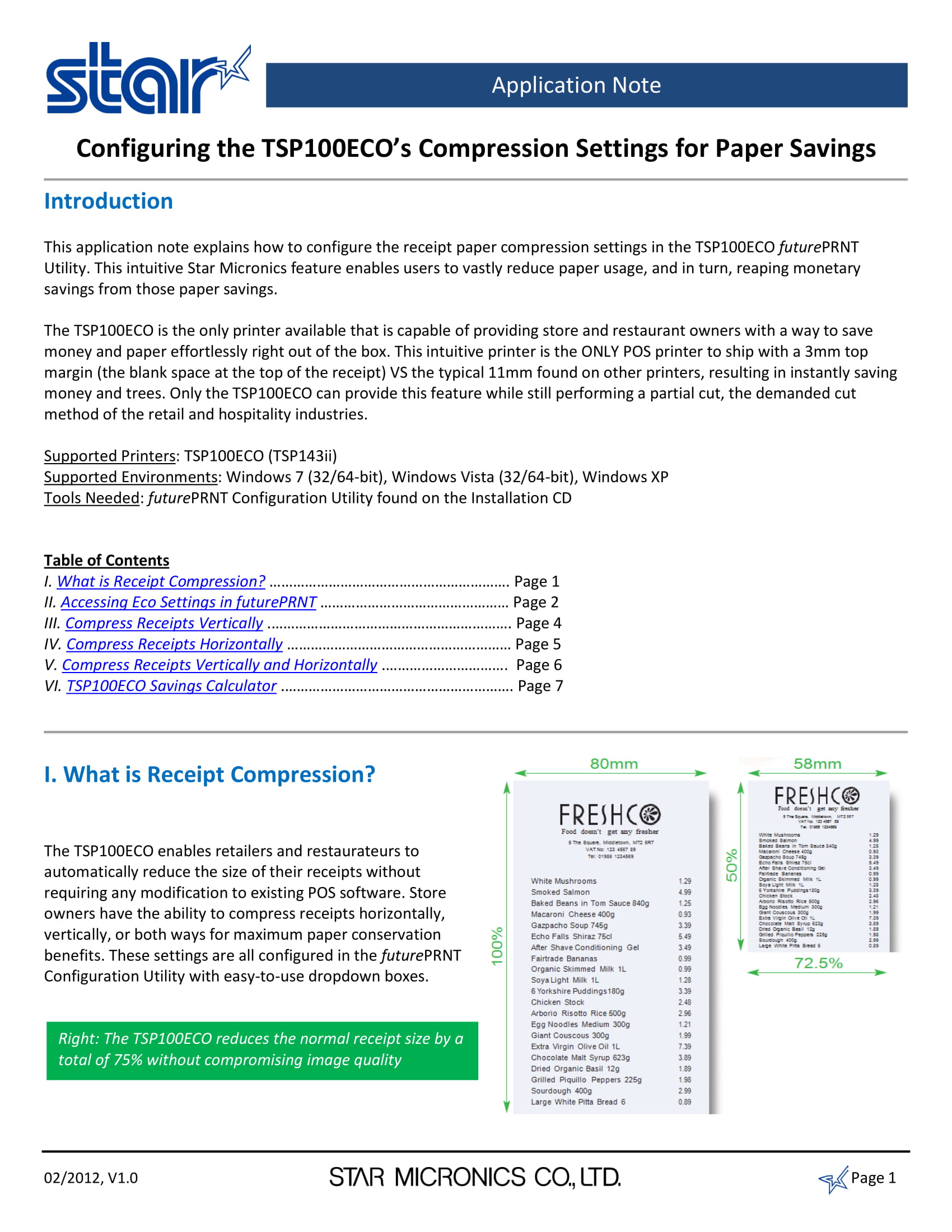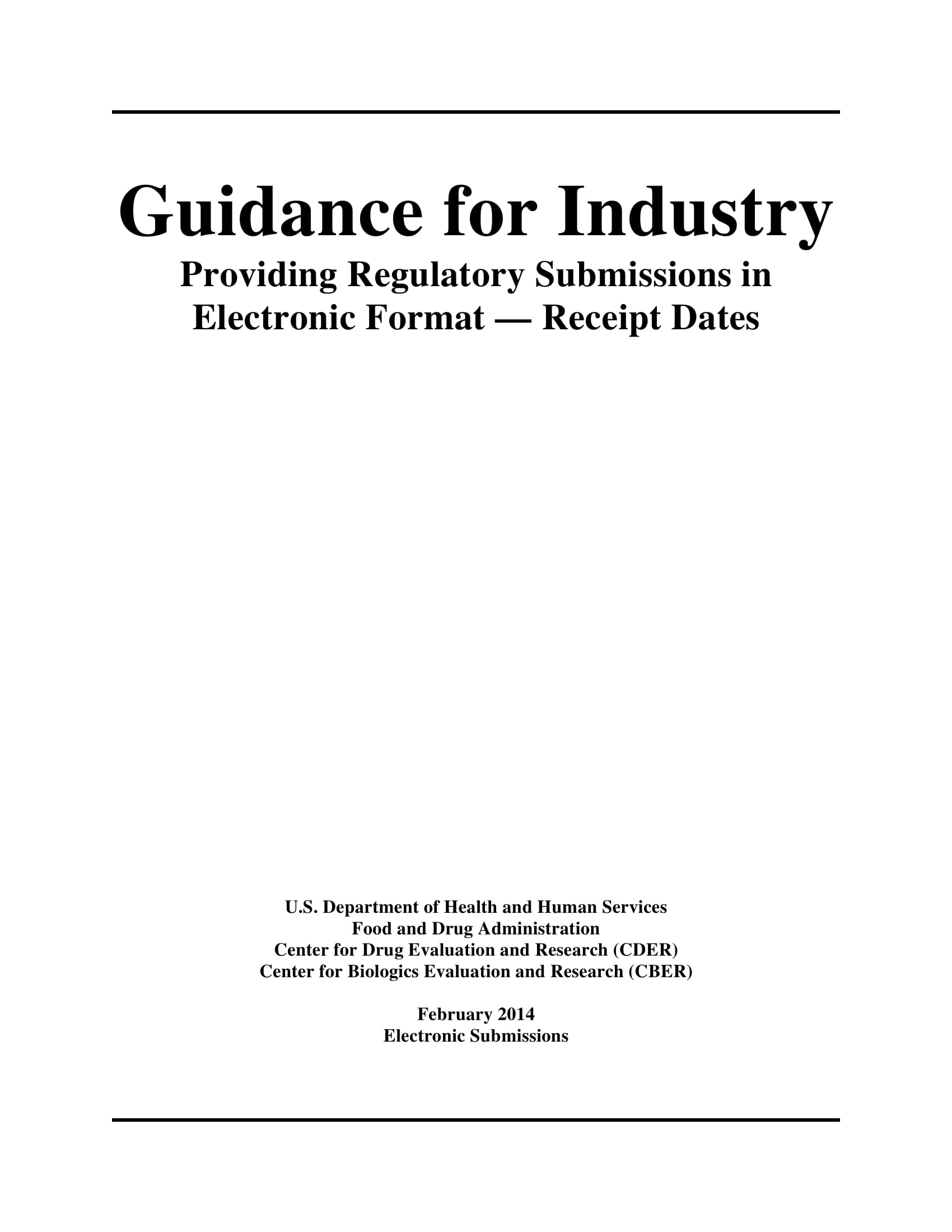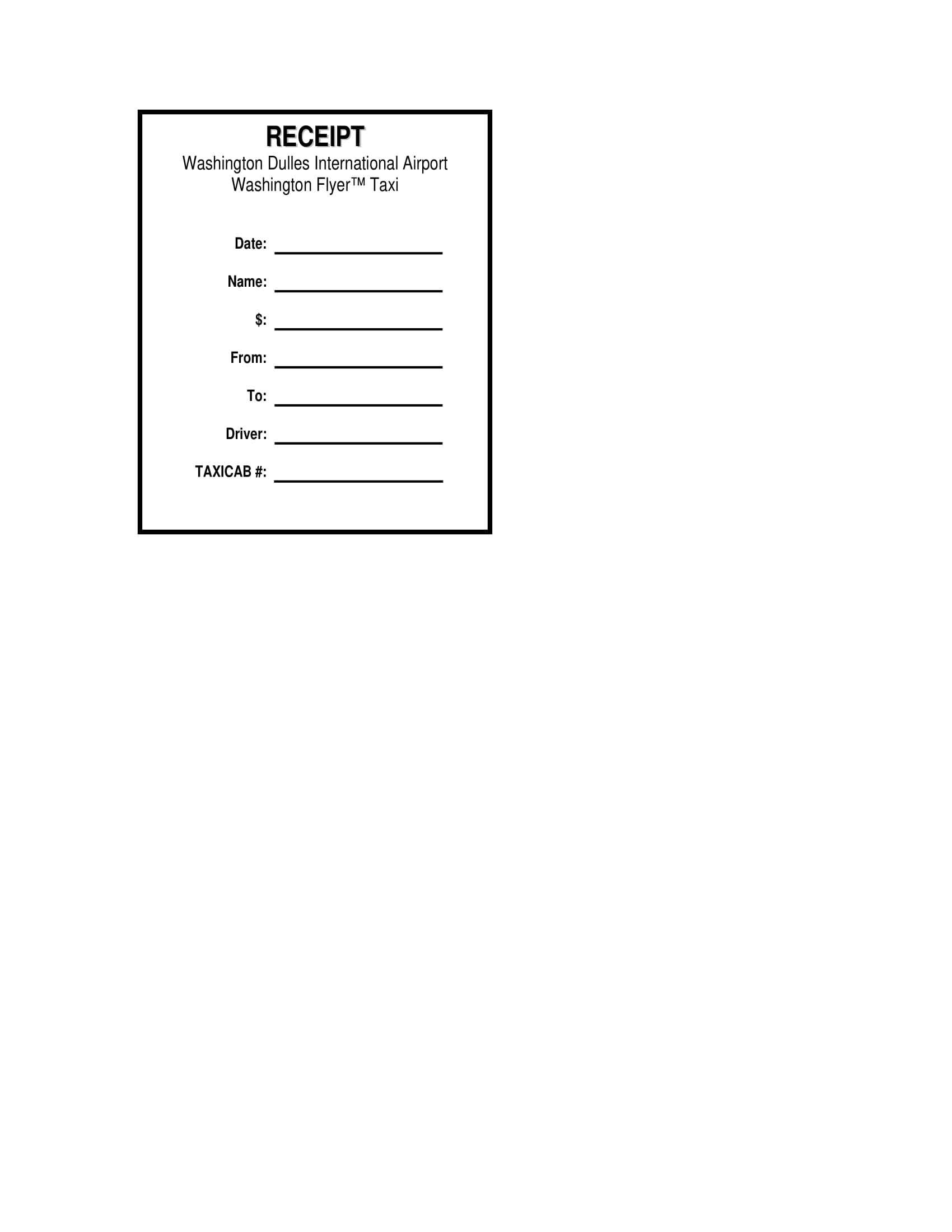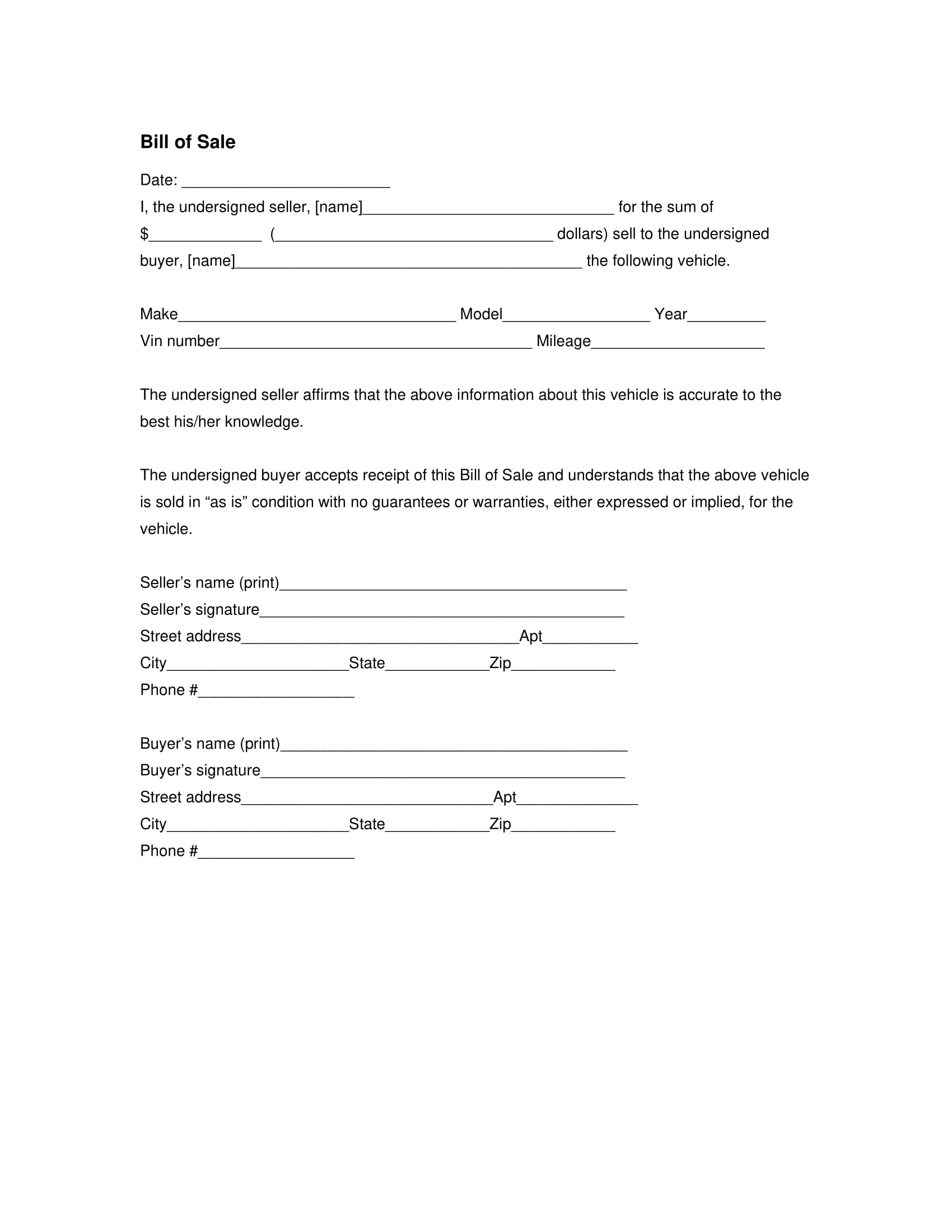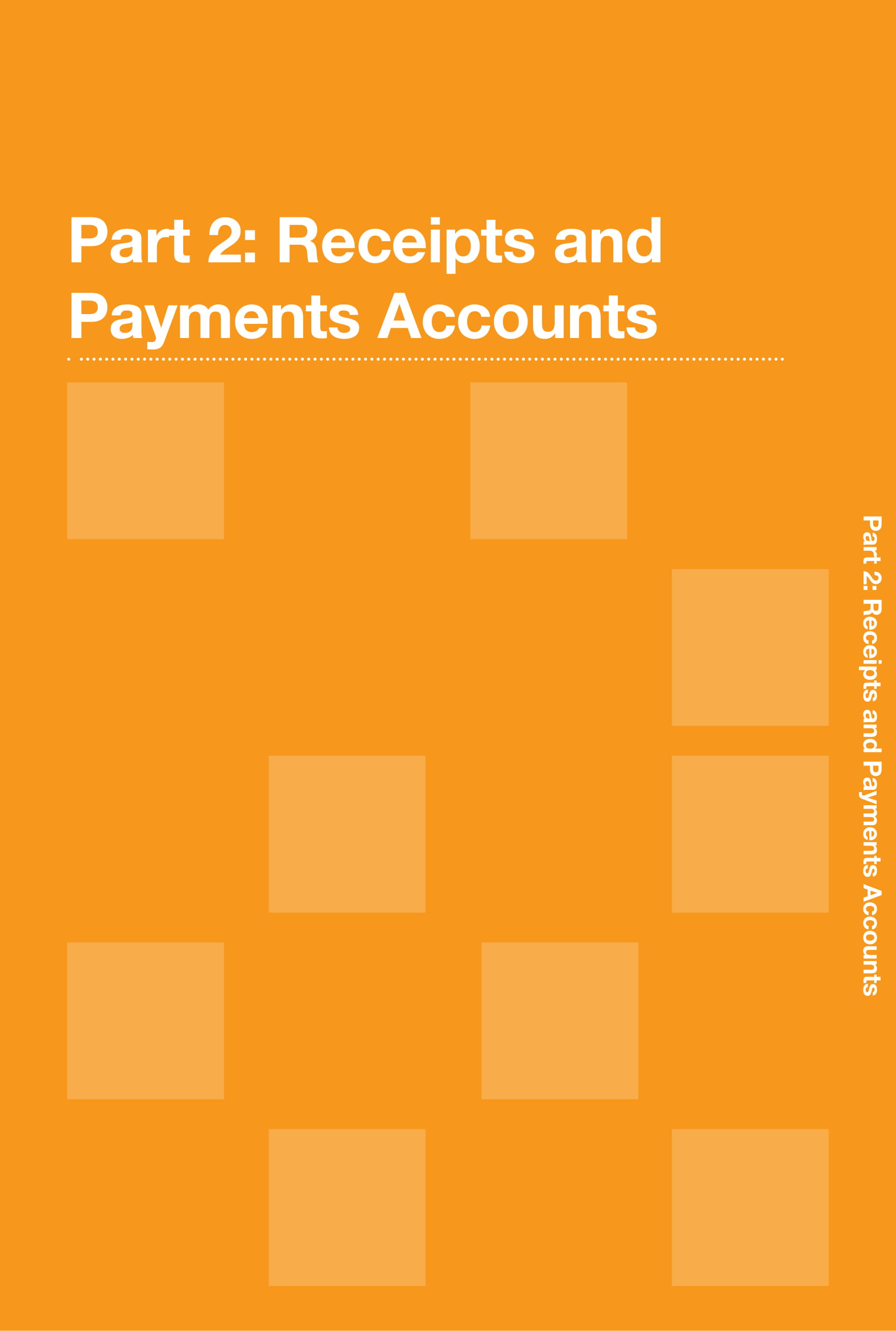17+ Simple Receipt Examples to Download
So what is that small paper bill you receive after you buy something? No, not the paper bill change but the small paper bill you kept on receiving every time you buy. It is a white long paper whose print can barely be read. It details the list of what you purchase, with its corresponding price. If you do not know what it is, it is probably you have not used it commercially. You probably have been throwing it every time a cashier gave it to you. But that small piece of paper is called, a receipt.
You probably have heard the word receipt from someone else, from you mother, or from your friends. But you just did not feel the need for its use, or the need to use it. So what is exactly is a receipt?
Simple Receipt Template
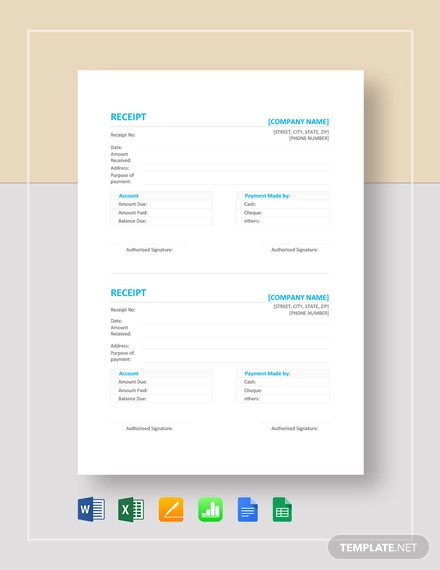
Free Simple Receipt Example
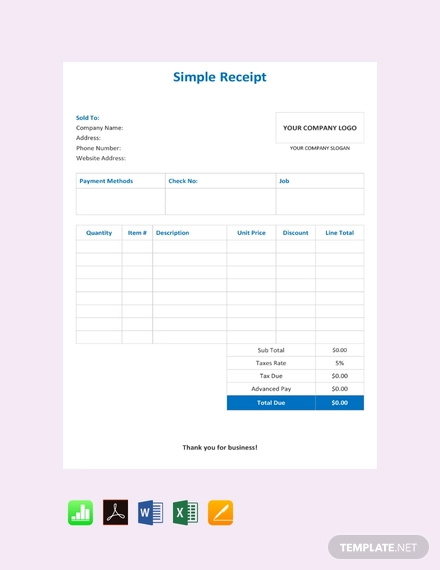
Sample Official Receipt Example
Etymology
Early recording of the word receipt was in 1386 in the line, “statement of ingredients in a potion or medicine.” It sounds strange that its origin somehow directs us to another word, recipe. Is this a mistake? Or is it just another case of a word evolving into a new word.
- “The ‘rules’ are simply what educated speakers generally accept as right or wrong at a given time. When enough of us decide ‘cool’ means ‘hot,’ change happens… correctness is determined by common practice.” That is what the authors, Patricia T. O’Connor and Stewart Kellerman would like to say.
Is the word receipt related to the word recipe? Apparently, it likely is. But let us look for some psuedo scholarly proofs.
Acknowledgement Receipt Example
Recipe
In Mental Floss website
- “Receipt is also a victim of the Latinizing craze. When the word came into English from French it had no ‘p’, and no one pronounced it as if it did. Enthusiastic Latinizers later added the ‘p’ on analogy with the Latin receptus. This is also how debt and doubt got their ‘b’s, salmon and solder got their ‘l’s, and indict got its ‘c.'”
Does it mean to say that there really is a word receit? We look at the Webster’s Revised Unabridged Dictionary in 1913, and,
- Noun
- receit (plural receits)
- Obsolete form of receipt.
- receit (plural receits)
… there really is a word receit.
Property Record Receipt Example
But how is it related to the word recipe?
In World Wide Words, their answer to the question goes like this:
- Receipt is an old form that means the same as recipe. Both derive from Latin recipere, to receive or take. Receipt was first used in medieval English as a formula or prescription for a medicinal preparation (Chaucer is the first known user, in the Canterbury Tales of about 1386).
Now that is a bold and strong claim. But we’d be more interested if it were coming from a legi resource, a book, or a dictionary. Let us, for a moment, review for clarification what recipe means today.
Without really looking at a dictionary, the word recipe can be understood to mean anything in a list that we use for cooking. The Webter’s has this to say:
- a set of instructions for making something from various ingredients
This is the common one that we know of. For example, The oil, the fish, the onion, the salt, the sugar will make up the food, the finish product, that we cook.
- a formula or procedure for doing or attaining something
For example in this sentence, Studying this article is one of the ingredients to understanding what recipe receipt means.
WEX Receipts Examples
Prescription
Another way of understanding the word recipe, and still as backed up by the Webster’s, is prescription. This leads us to another scope of analysis. Is the word receipt related to prescription? You would apparently notice that receipt is related to recipe, and recipe is also related to prescription. And you bet, how receipt is related to the word prescription? But let us reserve the said analysis, because the Webster has an interesting discussion about “the history of receipt and recipe.”
- These days it may seem odd to speak of “grandma’s cookie receipt,” but at one time the only meaning of receipt was “recipe.” The first recorded use of receipt is a reference to a medicinal preparation in Chaucer’s Canterbury Tales (c. 1386). Recipe didn’t arrive until the 1500s, and it was also first used to describe medicine. Both words began to be applied to cooking only in the 18th century, after which recipe slowly became the preferred word. Receipt acquired its currently more familiar sense of “a written statement saying that money or goods have been received” in the 17th century. Both receipt and recipe are thought to be ultimately derived from Latin recipere (“to receive”), making them probable relatives as well as synonyms.
Wait, did is say, receipt as a reference to a medicinal preparation in Chaucer’s Canterbury Tales? So in that respect, receipt is even closer to the word prescription, than it is to recipe. Isn’t it awkward to use the word receipt as prescription nowadays? Imagine the sound of this sentence,
- The doctor gave the patient a receipt.
Receipt for Rent Example
But hearing it in the contemporary setting, one can auto translate to mean prescription. That is how our brain works, such that when we see a traffic sign that says STOF, our brain says that we read the word STOP.
Common Denominator
If you look both the receipt and prescription in their physical form, you can surmise that they almost look the same. These three, the receipt, the recipe, the prescription has one common thing – a list. Any of the three details the components of a particular thing. For example, a receipt is a list of the items purchased. With its corresponding price. A recipe on the other hand gives us details of the goods to be used for in cooking. The prescription is also list of all items prescribed (advised) by the doctor to a patient. Of course they really do no look exactly the same. But where they actually differ is in the way they are used, in their functions.
Goods Receipt Example
That is how interesting the word receipt is, and its siblings. We may not need to discuss how these words became what we know now today. But it is obvious that the meaning of receipt/receipt as commercial receipt came later before these two. It would seem that our understanding of a commercial receipt is too systematic and too “businessy” to be practiced in the old times. But is it actually the case, that the understanding and the practice of receipt is just a later innovation?
Rent Receipts and Records Example
Receipt Origin
Here is one angle, one discussion about a receipt’s origin from Abacus blog:
- Writing that used symbols rather than pictures was invented in Samaria around 3200 BCE. It was used to keep track of goods given to the temple as offerings. This acted as a sort of an internal receipt.
If you have a strong background in religious studies, you would understand and realize that this kind of practice is very common. The practice of burning a young animal then for example, is a receipt or a form of receipt. It means that the person burning an animal was trying to please god. Or the act of not taking a bath to symbolize that one is making a repentance. That also is a receipt. The later version of this symbolism is that of an indulgence. All this for the sake of proving before god and the community that one is doing something beyond the ordinary either to please or ask for something from (the gods or) God. Accordingly:
- The oldest receipt ever found was for five sheep, one lamb and four grass-fed male kids. The receipt was given to a man named Alulu. It was a piece of clay about one inch by one inch and a half inch thick. Like modern receipts it could be easily lost, resulting in an ancient accounting nightmare that could be fatal. Maybe that’s why accountants and bookkeepers take receipts so seriously now.
Sample Current Tax Receipt Example
If we consider this practice as a form of receipt, then it is as good to say that the practice of receipt is a very old practice. It goes back to the times before anno domini. In today’s standards, such practice can still be practical, in fact it is even present by some individuals, and in some communities. Is it really practical? It is because we are dealing with the spiritual world reality here. If a religious person burns a fresh young calf, he does it because there will never be a physical evidence by the gods to confirm his actions of repentance or asking for favor. So, what he does is make his own dynamics or symbolism of the said repentance.
Receipt as Symbolism
The burning is just a symbolism. It symbolizes the act of penance, thanksgiving, or plea. This implies that as a symbol it points to the real thing – penance, et cetera; which means, it is not essential. One can actually do penance without burning an incense, or making a smoke. Penance is not about burning, or whatever symbolism that can be attached to it.
Receipt Templates Example
The Bible and Receipt
The Bible is clear in its message:
- For You do not delight in sacrifice, or I would bring it; You take no pleasure in burnt offerings.
This is a song (in the Bible) or a prayer of someone, admitting the fact that God does not be pleased with superficial or superfluous actions, God want a change of heart.
This symbolism as receipt that one has done something seems to be very human, and not spiritual. We are not asked to do these things, these symbolisms. But it seems, humans prefer to do the one that is easier. True, it is easier to do symbolisms such as saying I love you, than do its actual actual thing, which is the doing of I love you.
Statement of Receipt Example
Biblical Notion of Receipt Applied in the Real World
So, how is this biblical concept of receipt applied to the modern commercial meaning of the receipt. Simple, the receipt is not essential in the buying transaction. If you buy something, the you really do not need a receipt, you need the thing that you buy. The seller on the other hand, if someone buys something, he is not expected to give the buyer a receipt, he is expected to give the buyer the the item he is buying. That is the basic dynamics of buying, the buyer buys, the seller provides the goods. This is the simplest form of buying, in the same way that God does not need any of our receipts, he wants a change of heart, that is all. Because one can burn all the trees in the planet and fill it with monstrous smoke, and yet his heart is still as hard as stone, and that would not make God happy. So the receipt is not essential. But the money, and the goods are. So what then is the use of the receipt?
Sample Receipts Example
Purpose of a Receipt
The very main reason why we utilize a receipt in a business transaction is for documentation purposes. We want to prove that an action has been done, such as the action of buying and of selling. Hence, receipts are also called, proofs of purchase. And why is there a need to do so? If you are making a documentation of about anything, you are laying your cards open to the public. You are making your business, as a seller and provider, official. You are making your business legal. And this is the same thing that happens in the bible, when people make penance, they try to show off that they did through a lot of symbolisms. It was effective, and still is, but only to people. To God, it was not necessary because God can see what is in our hearts. So as material beings, it is just expected that we need physical proofs of our transaction. This is why we need receipts for documentation purposes, for proofs.
Importance of a Receipt
There are reasons why we need receipts.
As a buyer:
- Returns. The general terms when purchasing goods is that they can be returned within a given period of time after purchase. It could be three to seven days, depending on the store. Some requires that at least, the item to be returned is well within the specified terms such as, the cause of return, the extent of the damage, was it intentionally damaged or not? Was it already broken before being opened or not? And some other considerations. Usually, an item is covered in the return policy when it is damaged unintentionally. But whatever variations there is, the most important thing is the receipt. Even if your item is qualified for a return, if you do not have with you your receipt, then your return will not be honored.
- Rebates. Some companies, stores will offer rewards to random clients if you can show them a receipt. For example, when you watch a cinema, a pop corn seller may offer you a bucket of pop corn if you can show to them that your cinema ticket. Or for example, you bought a new car, a gasoline station may offer you a free full tank of gasoline if you can show to then a receipt of your newly purchased car. Or if you buy a new cellphone from a particular store, a sim card with data plan can be yours from another party for a better deal, than if you had not bought a cell phone.
- Rewards. This is the same principle as rebates, but let us just make a separate mention of this one here to give emphasis to stores that offer money if you can show to them a receipt. This may be less common than rebates, but it is good to hear that such practice exists in some stores.
- Reimbursements. There are cases, for example if you are a government employee and you are doing a project in your workplace. The government may support your project, and will help you financially. But the methods of doing it i thought reimbursement. So what you do, if you have the money to buy the materials needed for the project, is buy the materials. But, you can only be given reimbursement, the payment of for the materials that you spent, if you can show to them the receipt.
Star Sample Receipts Example
Basically, these are the reasons why we need receipts. If you keep your receipts, you can have a good tracking of your expenses. Receipts are an essential part of budgeting. They tell the history of your expenses. If you can not track your expenses, it would be difficult for you to make improvements in your savings.
This also goes to your expenses in your maintenance such as car repairs or house repairs. Receipts are not just for the goods you have purchased but for the services that you have availed, such as the services that the carpenter has rendered to you in repairing your house.
As a seller:
- Requisite. Whatever personal reasons there are for using receipts, the very reason why a seller must issue receipts in every transaction is because it is requisite for a store to have one. Receipts are one of the foundations for having a legal commercial establishment.
- Liability. Because there is a set of terms being generated in the receipt, the seller can be liable in anything that could happen during and after the transaction.
- Trust and Confidence. Having a receipts is for the seller’s own advantage. If the seller issues receipts, it will create confidence to the buyers. It establishes trust between two parties.
- Inventory. If it is important for the regular buyers to have receipts for tracking purposes, so does with with the sellers. Tracking of sales, the ingoing and the outgoing of goods and payment is very basic in selling. You need to see the status of your sales so as to know what needs recovery, what needs some boost, what needs to be replaced.
Electronic Format Receipts Example
Who Uses Receipts
Receipts are required for every stores, whether stalls or boutiques. This is very fundamental in every commercial establishment. However, if you think you are operating a very small store, such that items can be bought very minimally, at a very small amount, you may do away with the usual issuing of official receipts. For example, in remote areas selling goods such as a piece of candy, that may not require a receipt. Official receipts has, in different states, a minimum amount of items to be purchased before you can issue them. This is because, every receipt is linked to taxes. If you pay taxes with your receipts, but the item in the receipt is just a piece of candy, then that may not be practical. Plus you are spending an amount of papers in the form of receipts, which may be more expensive than the goods to which the receipts will be issued.
If you want to operate your small business, again using the example of selling candies, to exaggerate, you may just use an ordinary piece of paper, a slip. This is for the purpose of respecting your buyers, and to show them that you really wanted to issue a real receipt but could not afford to have one.
Examples of these simple receipts are the ones that the land lady would issue to you for renting a small room. Or perhaps, the receipt that the taxi drivers will give you. Or perhaps the seller of used books who happens to be your friend also. You can tell they are not official receipts just by the looks of it. Or if you intend to buy the used phone of your friend, he probably would give you simple receipt. Simple receipts also mean, generic receipts.
Tax IAD Receipt Example
Simple Receipt
There is no such thing as simple receipt, because there is not such thing as fancy or complicated one. There are however, receipts that are not official, and they may lack some information. This may be what we meant by a simple receipt. If it is not an official receipt, at least, it should contain the following details of information.
- Name of the store or seller.
- Contact number.
- Location of the store.
- List of the goods or merchandise.
- The corresponding price of the items.
- Breakdown as we as the total price.
For Official Receipts
You may add the following,
- Order or transaction number.
- Terms at the back of the receipt.
- Tax or revenue number.
Bill of Sale Example
A receipt may not be necessary if you are operating a tiny store, but there are a lot of things it can do to your business, as well as to your customers. If your store grows big, at least you will have the mastery on how to handle official receipts, that is required for every large businesses.
Simple receipts can be in a form of a hand written letter, if you prefer, where you just have to indicate the items and the price. It does not have to be that formal. The most important thing is to acknowledge payment and that the items were received.
Receipts and Payments Example
Note that official receipts are supposed to be registered. Unless you really have no plans for a serious business, such as you just happen to sell your cell phone for emergency reasons, then you may just use a generic receipt. Or for example, you sell your fish that you labored during last night’s fishing, that, may not require an official receipt. Or you have a restaurant that sells cheap foods, it is a small restaurant that the owner is also the cashier, the server, so small you only have one kind of food, other than the rice serving. That may not require an official receipt. But if you are serious in your business, meaning, you had your business registered in the bureau, then you are expected to be using an official receipt.



